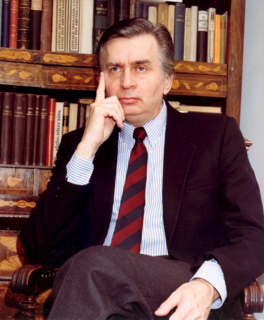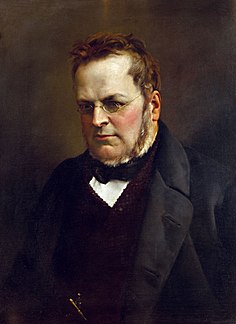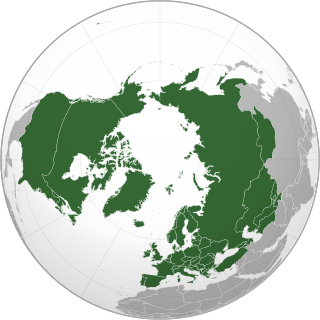
Parliamentary elections were held in Macedonia on 18 October 1998, with a second round on 1 November. VMRO-DPMNE emerged as the largest party, winning 49 of the 120 seats, and later formed a coalition government with Democratic Alternative and the Democratic Party of Albanians.

Parliamentary elections were held in Hungary on 9 April 2006, with a second round of voting in 110 of the 176 single-member constituencies on 23 April. The Hungarian Socialist Party emerged as the largest party in the National Assembly with 186 of the 386 seats, and continued the coalition government with the Alliance of Free Democrats. It marked the first time a government had been re-elected since the end of Communist rule.

A referendum on allowing President Lukashenko to stand in further elections was held in Belarus on 17 October 2004, alongside parliamentary elections. Lukashenko was nearing the end of his constitutionally-limited two terms, and the change would allow him to run for a third term. The result was 88.9% in favour, with a turnout of 90.3%.

Parliamentary elections were held in Hungary on 10 May 1998, with a second round of voting in 175 of the 176 single member constituencies on 24 May.

Presidential elections were held in Belarus on 9 September 2001. The election should have been held in 1999, but a revised constitution adopted in 1996 extended incumbent Alexander Lukashenko's term for another two years.

The 1990 Hungarian parliamentary elections were held in Hungary on 25 March 1990, with a second round of voting taking place in all but five single member constituencies on 8 April. They were the first completely free and competitive elections to be held in the country since 1945, and only the second free elections in the country's history. The conservative, nationalist Hungarian Democratic Forum (MDF) beat the liberal and more internationalist Alliance of Free Democrats, which had spearheaded opposition to Communist rule in 1989, to become the largest party in parliament. The Hungarian Socialist Party, the former Communist party, suffered a crushing defeat, winning only 33 seats for fourth place.
Parliamentary elections were held in Belarus on 15 October 2000, with further rounds of voting on 29 October, 18 March and 1 April. The vast majority of successful candidates, 94 of 110, were independents. Voter turnout was reported to be 61.08%.

Parliamentary elections were held in Belarus on 14 May 1995 to elect the thirteenth Supreme Council. The elections took place alongside a multi-question referendum, although several further rounds of voting were required on 28 May, 29 November and 10 December. The majority of candidates elected were independents, although 62 seats remained unfilled due to insufficient voter turnout. A total of 2,348 candidates and 22 parties contested the election, around a thousand of which were independents. After the planned two rounds, only 119 of the 260 seats had been filled due to turnouts being too low in some areas. As this was well short of the 174 needed for a quorum, an additional two rounds were necessary. By the fourth round a quorum was reached, and although further rounds of voting were planned for 1996 to fill the remaining seats, following the constitutional amendments made following the referendum and the subsequent formation of a new National Assembly, they were not held.

Parliamentary elections were held in Norway on 21 October 1918, with a second round between 4 and 11 November. The result was a victory for the Liberal Party, which won 51 of the 123 seats in the Storting. Despite receiving the most votes, the Labour Party won just 18 seats, a loss of one seat compared with the 1915 elections.
Parliamentary elections were held in Albania on 26 May 1996, with a second round of voting for 25 seats on 2 June. The result was a victory for the ruling Democratic Party of Albania, which won 122 of the 140 seats. Voter turnout was 89.1%.

Parliamentary elections were held in Andorra on 9 December 1981, with a second round of voting on 16 December. Local elections were held on the same day. Following the elections, Òscar Ribas Reig became the country's first Prime Minister.

Parliamentary elections were held in Andorra on 12 and 19 December 1985. As political parties were not legalised until 1993, all candidates ran as independents. Following the election, Josep Pintat-Solans remained Prime Minister.

Parliamentary elections were held in Andorra on 10 December 1989, with a second round of voting on 17 December. Following the elections, Òscar Ribas Reig became Prime Minister, elected on 12 January 1990 by a vote of 23−5.

Parliamentary elections were held in Andorra on 5 April 1992, with a second round of voting on 12 April. Following the elections, Òscar Ribas Reig remained Prime Minister.

Parliamentary elections were held in Hungary on 25 and 26 January 1920. However, they were only held in 164 districts. After the Treaty of Trianon was signed, the 44 districts previously occupied by Romania voted between 13 June and 5 July, whilst the 11 districts occupied by Serbia did not vote until 30 and 31 October 1921. The election was held with compulsory voting. In protest at this and other changes to the franchise that left 60% of the voting age population unable to vote, the Hungarian Social Democratic Party boycotted the elections, and called for its supporters to cast invalid votes, resulting in an unusually high number of blank or invalid votes - 11.8% in the January elections and over 20% in Budapest and other major cities.

General elections were held in Italy on 27 January 1861, with a second round on 3 February. The newly elected Parliament first convened in Turin on 4 March 1861, where, thirteen days later, it declared the unification of the country as the Kingdom of Italy.

General elections were held in Italy on 22 October 1865, with a second round of voting on 29 October. It was the second one in the history of Italy.

General elections were held in Italy on 29 October 1882, with a second round of voting on 5 November. The "ministerial" left-wing bloc emerged as the largest in Parliament, winning 289 of the 508 seats.

Parliamentary elections were held in the Socialist Republic of Macedonia on 11 November 1990, with a second round on 25 November. They were the first competitive elections in the country's history. VMRO-DPMNE emerged as the largest party, winning 38 of the 120 seats.
The Belarusian Patriotic Party is a political party in Belarus loyal to President Alexander Lukashenko. Nikolai Ulakhovich is party chairman.
















